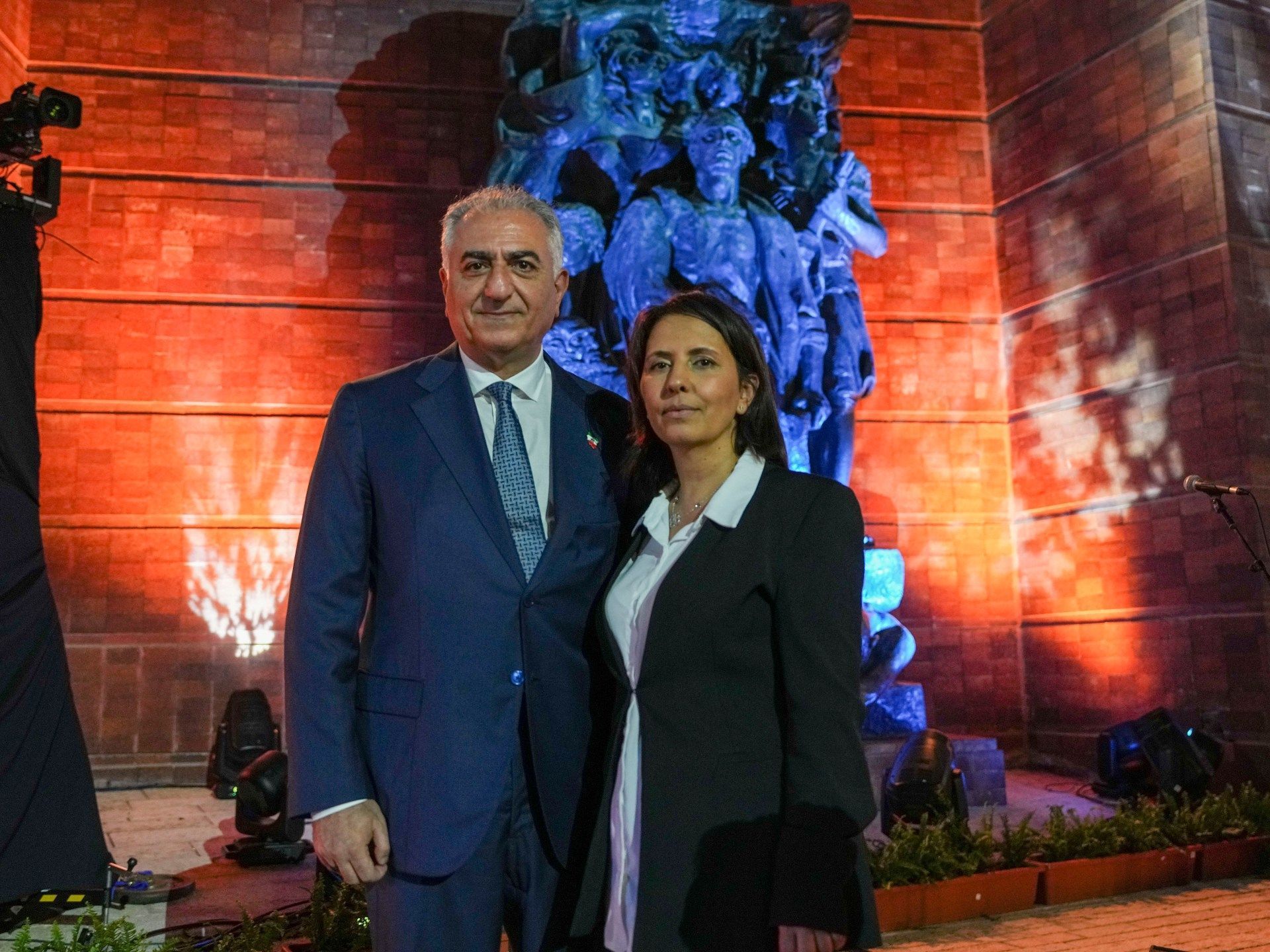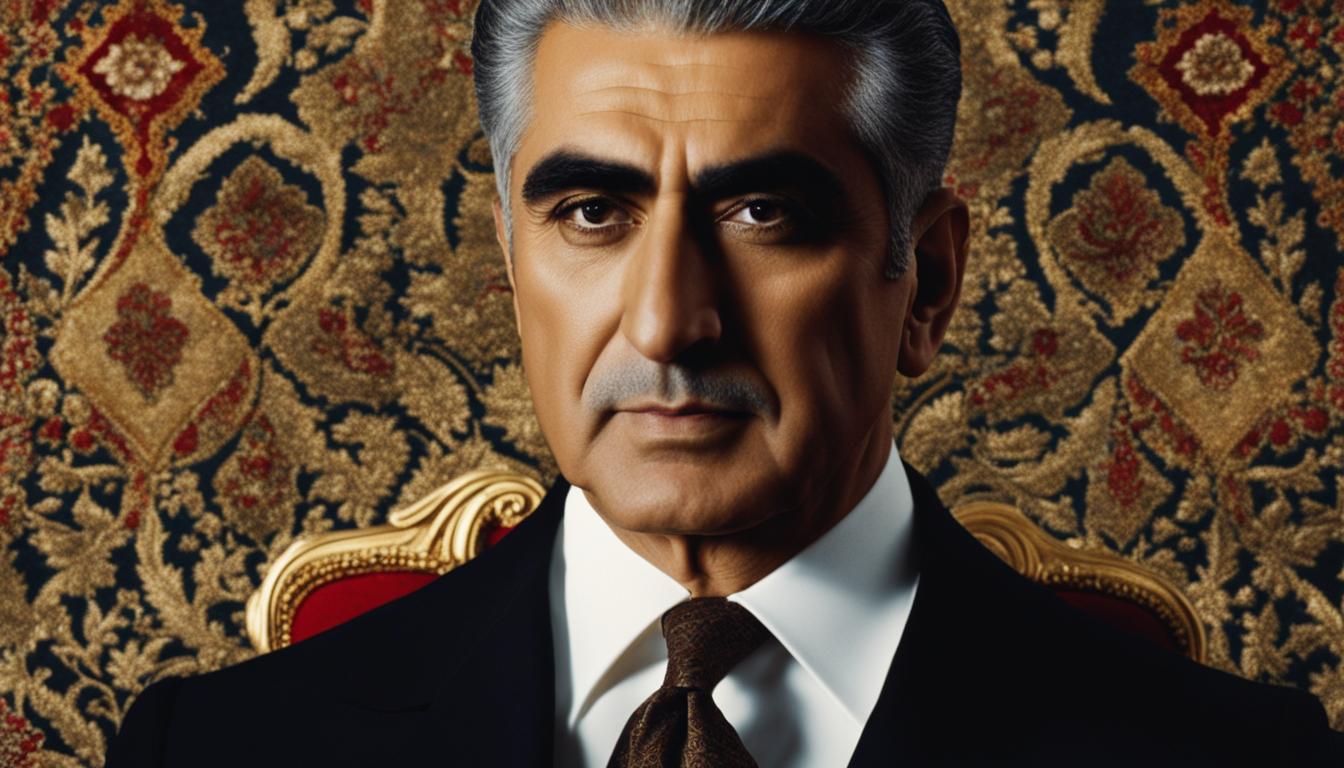The name Reza Pahlavi resonates deeply in the realms of Iranian history and political discourse. As the eldest son of the last Shah of Iran, Reza Pahlavi has been a pivotal figure in the Iranian diaspora. His life, legacy, and financial standing have sparked immense curiosity, particularly his net worth. This article aims to provide an in-depth analysis of the wealth amassed by Reza Pahlavi, shedding light on the intricacies of his financial journey.
Reza Pahlavi's prominence is not merely confined to his royal lineage. He has emerged as a vocal advocate for democratic reforms in Iran, which has placed him at the center of global attention. As we delve into the details of his net worth, it becomes crucial to understand the various factors that have contributed to his financial status.
In this article, we will explore the multifaceted aspects of Reza Pahlavi's life, including his royal heritage, political endeavors, and the sources of his wealth. By analyzing credible data and expert opinions, we aim to provide a comprehensive overview of his financial standing and the factors influencing it.
Table of Contents
- Biography of Reza Pahlavi
- Early Life and Education
- Royal Heritage and Influence
- Political Journey and Advocacy
- Sources of Wealth
- Assets and Investments
- Net Worth of Reza Pahlavi
- Comparison with Other Royalty
- Challenges and Controversies
- Future Prospects and Outlook
Biography of Reza Pahlavi
Reza Pahlavi, born on October 31, 1960, in Tehran, Iran, is the eldest son of Mohammad Reza Pahlavi, the last Shah of Iran. His life has been shaped by the tumultuous events that led to the Iranian Revolution in 1979. Following the revolution, Reza Pahlavi and his family were forced into exile, where he continued to advocate for democratic reforms in Iran.
Key Biographical Details:
| Full Name | Reza Pahlavi II |
|---|---|
| Date of Birth | October 31, 1960 |
| Place of Birth | Tehran, Iran |
| Family | Son of Mohammad Reza Pahlavi |
| Residence | United States (in exile) |
Early Life and Education
Reza Pahlavi's early life was steeped in the traditions of the Iranian monarchy. Growing up in the royal palace, he received a privileged education, attending prestigious institutions both in Iran and abroad. His formative years were marked by a rigorous academic curriculum, which prepared him for a leadership role in the future.
After the revolution, Reza Pahlavi pursued higher education in the United States, completing his studies in political science and international relations. This academic foundation laid the groundwork for his later involvement in political advocacy.
Royal Heritage and Influence
The Pahlavi dynasty holds a significant place in Iranian history. As the son of the last Shah, Reza Pahlavi inherited a legacy of power and influence. The wealth amassed by the Pahlavi family during their reign has been a subject of much speculation and interest.
Key Points:
- The Pahlavi dynasty ruled Iran from 1925 to 1979.
- During their reign, the family accumulated substantial wealth through various means, including oil revenues and international investments.
- Reza Pahlavi's royal heritage has played a crucial role in shaping his financial standing.
Political Journey and Advocacy
Reza Pahlavi's political journey is marked by his unwavering commitment to democratic reforms in Iran. From his base in exile, he has actively engaged in efforts to promote human rights and democracy in his homeland. His advocacy has garnered support from various international organizations and governments.
Notable Achievements:
- Founding of the National Council of Resistance of Iran (NCRI).
- Participation in numerous international conferences and forums to raise awareness about the Iranian cause.
- Publication of books and articles highlighting the need for democratic change in Iran.
Sources of Wealth
The net worth of Reza Pahlavi is influenced by multiple sources, including inherited wealth, investments, and income from advocacy activities. While exact figures are difficult to ascertain, estimates suggest a significant financial standing.
Primary Sources:
- Inherited Wealth: The Pahlavi family's vast assets, including real estate and investments, contribute significantly to Reza Pahlavi's net worth.
- Investments: Reza Pahlavi has diversified his investments across various sectors, ensuring a steady flow of income.
- Advocacy Activities: His involvement in political advocacy has provided additional financial resources through donations and support from international organizations.
Assets and Investments
Reza Pahlavi's assets are a testament to his financial acumen and strategic planning. His portfolio includes a mix of real estate, financial investments, and intellectual property.
Key Assets:
- Real Estate: Properties in the United States and Europe.
- Financial Investments: Stocks, bonds, and mutual funds.
- Intellectual Property: Royalties from publications and speeches.
Net Worth of Reza Pahlavi
Estimates of Reza Pahlavi's net worth vary depending on the sources consulted. According to recent reports, his net worth is estimated to be in the range of $50 million to $100 million. This figure takes into account his inherited wealth, investments, and income from advocacy activities.
Factors Influencing Net Worth:
- Market fluctuations affecting his investment portfolio.
- Political developments in Iran impacting the value of his assets.
- Donations and support from international organizations.
Comparison with Other Royalty
Reza Pahlavi's net worth is often compared to that of other royal families and political figures. While his financial standing is substantial, it is important to note the unique circumstances surrounding his wealth accumulation.
Comparative Analysis:
- Reza Pahlavi's net worth is comparable to other exiled monarchs, such as King Sihanouk of Cambodia.
- His wealth is significantly less than that of reigning monarchs, such as King Salman of Saudi Arabia.
Challenges and Controversies
Despite his financial success, Reza Pahlavi has faced numerous challenges and controversies throughout his life. These include legal battles over inherited assets, political opposition, and criticism from various quarters.
Notable Challenges:
- Legal disputes over the division of Pahlavi family assets.
- Political opposition from groups within Iran and abroad.
- Criticism regarding the effectiveness of his advocacy efforts.
Future Prospects and Outlook
The future prospects of Reza Pahlavi's financial standing are closely tied to the political developments in Iran. Should democratic reforms gain momentum, his influence and wealth could see a significant increase. Conversely, any setbacks in the political landscape could impact his financial position.
Possible Scenarios:
- Increased support for democratic reforms leading to greater financial resources.
- Continued political instability resulting in challenges to his financial standing.
Conclusion
In conclusion, the net worth of Reza Pahlavi is a reflection of his royal heritage, strategic investments, and advocacy efforts. While exact figures may vary, it is evident that his financial standing is substantial and influenced by a multitude of factors. As the political landscape in Iran continues to evolve, Reza Pahlavi's role and financial position are likely to remain significant.
We invite you to share your thoughts and insights in the comments section below. Additionally, feel free to explore other articles on our site for more in-depth analyses of global figures and their financial journeys. Your engagement and support help us provide valuable content for our readers.
References:
- Encyclopedia Britannica: Reza Pahlavi
- Forbes: Wealth of Exiled Monarchs
- Financial Times: Political Influence and Wealth


